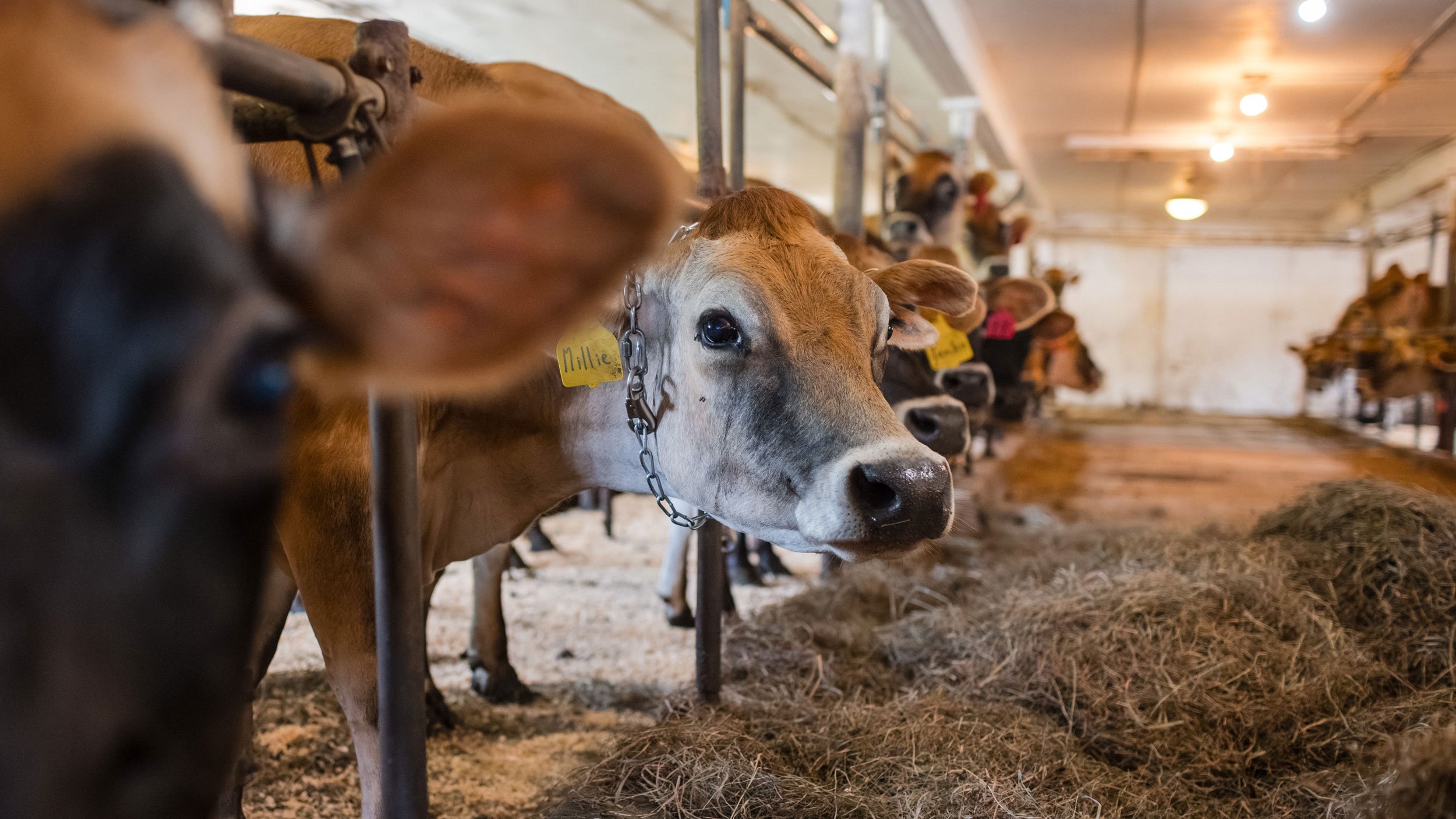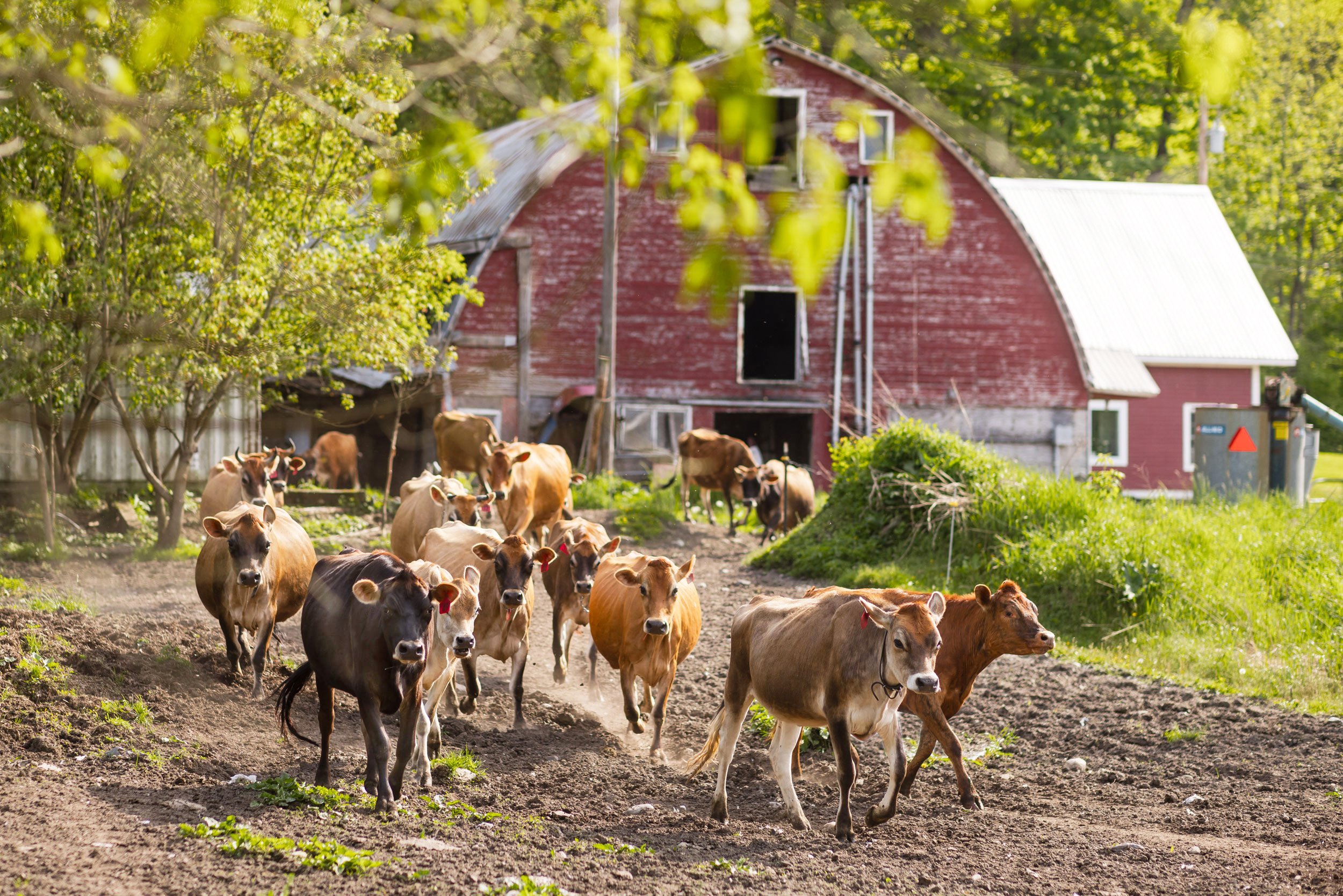
Organic dairy Farming
in Central Vermont
Life is better with Jerseys!
Let us count the ways.
We manage over 200 acres of land in West Berlin, Vermont; land conserved with the Vermont Land Trust that has been continuously farmed for over 100 years. We use organic farming practices to bring life and vitality to our land and animals.
We care for one of the few 100% pure Jersey herds in the country and take pride in our herd because they:
Produce milk that’s high in butterfat and is the best for cooking and everyday enjoyment.
Are naturally curious and loaded with personality.
Need 32% less water and 11% less land to make the same amount of milkfat and protein compared to Holstein cows.
Are smaller than Holsteins and produce less waste, creating a 20% reduction in total carbon footprint.
Thrive when grazing on pasture land, so we don’t have to grow corn.

Meet the ladies
Every calf, heifer, and cow in our 50-strong herd has a name. Each year, we pick a theme for the new calves. We’ve done coffee drinks, cartoon characters, states, first-letter names, and everything in between. Our current favorite is our coffeehouse-inspired cows: latte, affogato, and cappuccino.
They also develop unique personalities that we love watching emerge. We know who loves ear scratches, who the “mama bear” of the herd is, and who will kick their heels up when it’s time to run out of the barn in the spring.
Where they roam
In the warm months, our cows are continuously rotated from pasture to pasture to eat a constant supply of fresh grass and return nutrients to the fields in their manure. We harvest hay from our fields to feed them in the winter. This model creates a closed-loop cycle of building soil health to create nutrient-dense dairy products.
Pastures are located along the Dog River and are managed with riverbank restoration and conservation practices in mind. We rotationally graze to build soil health and create buffer zones of vegetation between the cows and the river to prevent erosion.

Certified Organic
The organic seal means we follow strict third-party audited standards, including:
Putting the cows outside to graze for at least 120 days.
Using natural treatments instead of antibiotics if a cow is sick.
No synthetic growth hormones.
Regular check-ups from a vet.
Feeding only certified organic, non-GMO feed.
No use of pesticides on crops



